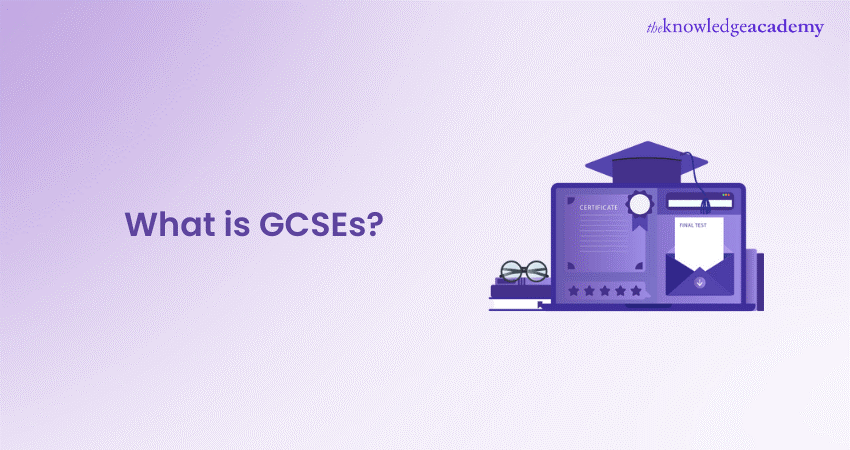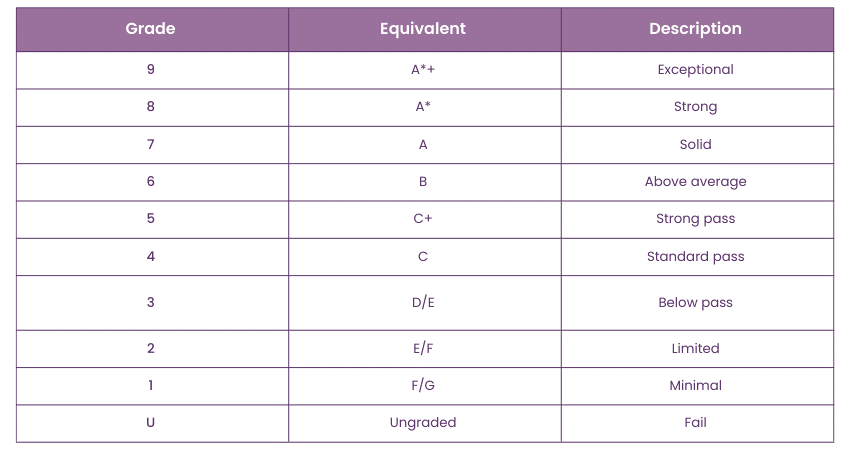We may not have the course you’re looking for. If you enquire or give us a call on +357 26030221 and speak to our training experts, we may still be able to help with your training requirements.
Training Outcomes Within Your Budget!
We ensure quality, budget-alignment, and timely delivery by our expert instructors.

As you approach the final stretch of your secondary school journey, the buzz around GCSEs grows louder. But what exactly are these three letters that wield such influence? You might be wondering, “What is GCSE?” and why is it such a big deal? GCSEs, or General Certificate of Secondary Education, are like stepping stones to your future—a bridge connecting your academic past to the exciting possibilities ahead.
Whether you’re considering further studies or planning your career, these exams are key. In this blog, we discuss what GCSEs are, explore their significance, decode the grading system, and even guide you in choosing the right subjects. So, buckle up—we’re about to embark on a knowledge-packed adventure!
Table of Contents
1) What is GCSE?
2) The Importance of GCSEs
3) How are GCSEs Graded?
4) What Are the Mandatory Subjects in GCSEs?
5) How to Choose Your GCSE Subjects?
6) Can You Take GCSE Exams on Your Own?
7) Potential Pathways After GCSEs
8) Conclusion
What is GCSE?
GCSE stands for General Certificate of Secondary Education. It's a qualification students typically earn at the end of their secondary school education, around the age of 16, in the UK.
GCSEs are a set of exams taken in various subjects to show your knowledge and skills in those areas. These qualifications are essential for progressing to higher education or entering the workforce.
The Importance of GCSEs
GCSEs are very important as they lay the foundation for your future education and career. They are often the first major qualifications you'll earn and are crucial for getting into further education, like A-levels or vocational courses. Employers and universities also look at your GCSE results when considering you for jobs or admission.
How are GCSEs Graded?
GCSEs are graded on a scale from 9 to 1, with 9 being the highest and 1 being the lowest. The new grading system now uses numbers instead of the old letter grades, providing a more precise assessment of student performance. Here’s how the new grades correspond to the old ones:

a) Grade 9 – Even higher than the old A*, indicating exceptional performance.
b) Grade 8 – Below an A* but above an A, reflecting a strong understanding of the subject.
c) Grade 7 – Slightly below an A but still very close, showing solid achievement.
d) Grade 6 – Slightly better than a B, demonstrating above-average knowledge.
e) Grade 5 – Below a B but above a C, also known as a 'strong pass'.
f) Grade 4 – Equivalent to a C, referred to as a 'standard pass'.
g) Grade 3 – Below a D but above an E, showing some understanding but not quite passing.
h) Grade 2 – Between an E and an F, indicating a limited grasp of the material.
i) Grade 1 – Between an F and a G, representing minimal achievement.
j) Ungraded (U) – The lowest possible mark, and just like the old system, a U represents a fail.
What are the Mandatory Subjects in GCSEs?
Some subjects are mandatory for all students taking GCSEs. These usually include English, Mathematics, and Science. You may also be required to study subjects like Physical Education and Religious Studies, depending on your school.
Learn essential techniques for prioritising tasks with our Time Management Training – Join today!
How to Choose Your GCSE Subjects?
Here are some tips to help you decide your subjects:
Required Number of GCSEs
You should take a minimum of 5 subjects, and while it's possible to take up to 16 GCSEs, managing such a large number can be extremely challenging. Most students typically take around 9 GCSE subjects.
Select Subjects You Excel In
Choose subjects you are good at and enjoy. Doing well in these subjects will boost your overall grades and confidence.
Most Challenging GCSE Subjects
Some subjects are considered more challenging than others, like
a) Physics
b) English Literature
c) Maths
d) Computer Science
e) Economics
f) Biology
g) English Language
Think about whether you enjoy a challenge and are prepared to put in the extra effort.
Avoid Overloading with Too Many Subjects
Taking too many subjects can be overwhelming. It's better to focus on doing well in a manageable number of subjects than spreading yourself too thin.
Seek Advice from Others
Consult your teachers, parents or career advisors when choosing your subject. They can be useful and give you the information to make the right choices.
Easiest GCSE Subjects
While it's important to choose subjects you enjoy and are good at, some subjects are generally considered easier, like
a) Geography
b) Film Studies
c) Religious Studies
d) Media Studies
e) Hospitality and Catering
f) Business Studies
g) Drama
h) Physical Education
However, make sure they align with your interests and future goals.
Consider Your Future Goals and Career Aspirations
Think about what you want to do after school. If you have a specific career in mind, choose subjects that will help you get there. For example, if you want to be a doctor, focus on science subjects.
Learn how to deal with stress with our Stress Management Course – Join today!
Can You Take GCSE Exams on Your Own?
Yes, it is possible to sit for GCSE as a private candidate. This means you study the material on your own or with a tutor and then take the exam at an authorised exam centre. This option is normally preferred by learners who were unable to pursue GCSEs in school or even those who wish to repeat exams to improve their grades.
Potential Pathways After GCSEs
After completing your GCSEs, you have several options. You can continue your education by taking Advanced Level qualifications (A-levels), Business and Technology Education Council Qualifications (BTECs), or other vocational qualifications. Alternatively, you can start an apprenticeship or enter the workforce, depending on your career goals.
Conclusion
GCSEs are a crucial step in your education, helping to shape your future. Having an understanding of “What is GCSE” and selecting the most appropriate subjects, as well as doing well in your exams, prepares you well for the next level of education and your desired job market. However, do not rush with decision-making; consult with others and follow the path that will allow you to leverage your skills and achieve your goals.
Learn the career development challenges with our Career Development Course – Sign up today!
Frequently Asked Questions

The most difficult GCSE exam differs from one learner to another. However, data shows that subjects such as Maths, Physics, and History are the most demanding because of the information density they cover.

GCSEs are different from the SAT. GCSEs cover multiple subjects and are taken over two years, while the SAT is a single standardised test for college admissions in the US.

The Knowledge Academy takes global learning to new heights, offering over 30,000 online courses across 490+ locations in 220 countries. This expansive reach ensures accessibility and convenience for learners worldwide.
Alongside our diverse Online Course Catalogue, encompassing 19 major categories, we go the extra mile by providing a plethora of free educational Online Resources like News updates, Blogs, videos, webinars, and interview questions. Tailoring learning experiences further, professionals can maximise value with customisable Course Bundles of TKA.

The Knowledge Academy’s Knowledge Pass, a prepaid voucher, adds another layer of flexibility, allowing course bookings over a 12-month period. Join us on a journey where education knows no bounds.

The Knowledge Academy offers various Personal Development Courses, including the Career Development Course, Stress Management Course, and Time Management Training. These courses cater to different skill levels, providing comprehensive insights into GCSE Grades 2024.
Our Business Skills Blogs cover a range of topics related to Career Development, offering valuable resources, best practices, and industry insights. Whether you are a beginner or looking to advance your Career Development knowledge, The Knowledge Academy's diverse courses and informative blogs have got you covered.
Upcoming Business Skills Resources Batches & Dates
Date
 Career Development Course
Career Development Course
Fri 15th Nov 2024
Fri 28th Feb 2025
Fri 4th Apr 2025
Fri 27th Jun 2025
Fri 29th Aug 2025
Fri 24th Oct 2025
Fri 5th Dec 2025
 Halloween sale! Upto 40% off - Grab now
Halloween sale! Upto 40% off - Grab now







 Top Rated Course
Top Rated Course



 If you wish to make any changes to your course, please
If you wish to make any changes to your course, please


